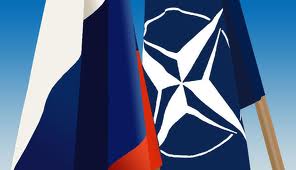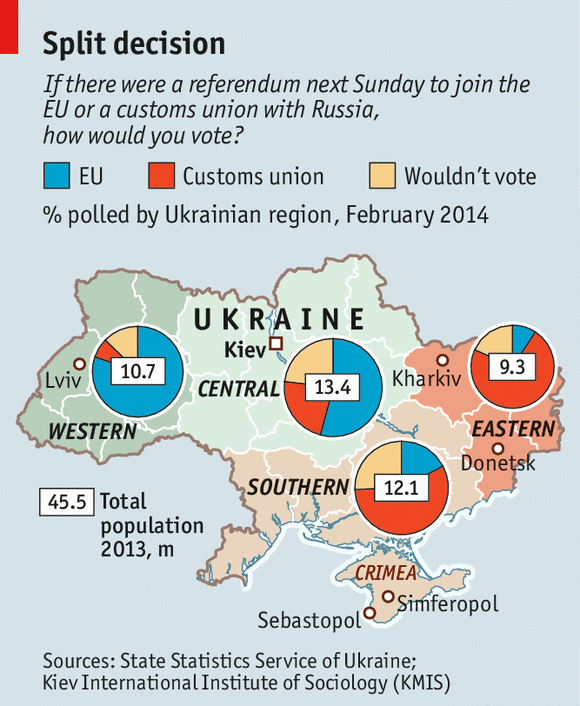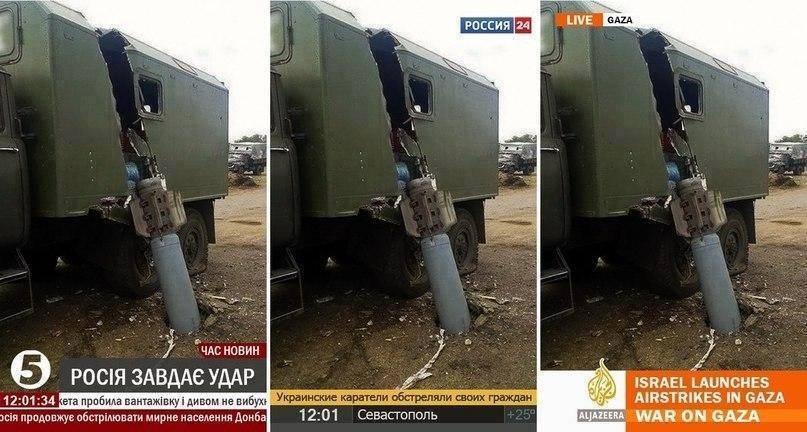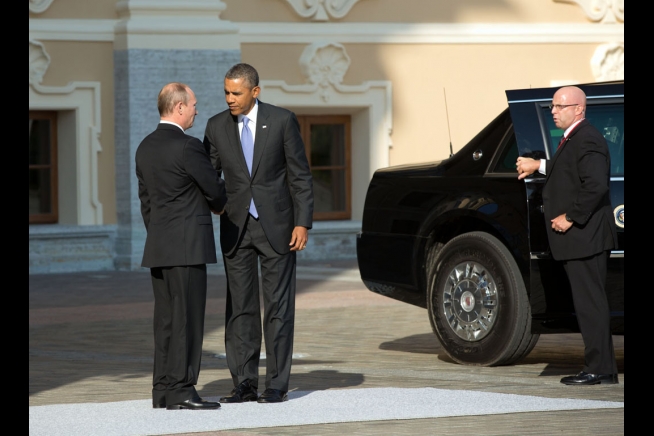CHALLENGES IN THE INFORMATION SPHERE OF RUSSIA’S NEIGHBORHOOD
In the first of a three-part article, Elina Lange-Ionatamišvili and Diāna Potjomkina discuss the challenges Russia’s strong presence and aggressive information campaigns pose for the information space of the Baltic states, Ukraine, Georgia, and Moldova. Describing the environment and challenges in the wider context of post-Soviet heritage and recent political developments, the authors propose policy options for the countries in question on how to strengthen their own information space by democratic, inclusive, and comprehensive methods.
It is a historically well-known phenomenon that small states fall under the influence of big neighboring states – be it economic, cultural, security, or information and media related. Considering the rapid development of modern technologies and the increase in global connectivity and information flows during the past twenty years, inter-state influence and interdependence in the information and media spheres has grown considerably.
Such influence can become sensitive, should political, economic, or other interests of the states in question not match. The influencing state trying to compete for the hearts and minds of influenced country’s inhabitants can aim to change the latter’s chosen development vectors. Thanks to a well-executed media, narrative control, and propaganda campaigns, such pressure can become overwhelming.
A favorable environment
In the modern media environment, TV channels and social media networks have become active participants of such influence campaigns. After creating a “favorable environment,” it is then used by the aggressor state to raise discontent in the target population through the help of active propaganda. The next step is a covert military operation with the active involvement of civilians, making it hard to tell an internal conflict or uprising from an activity that is fuelled from abroad by an aggressor state. Events in Ukraine, where this type of new warfare has been applied, demonstrate that information is a weapon, and TV, social media, and other public information channels can become active participants of influence or propaganda campaigns.
This is something that can be well observed in the past decade in the Russian Federation’s relationship with its immediate neighbors. Russia’s state policy documents, such as the Foreign Policy Review (2007) and the State Security Strategy (2009), refer to the aim of increasing information influence in the strategically important neighborhood of the former Soviet states in order to keep the populations of these countries (mainly the Russian-speaking ethnic minorities) under a united, Kremlin-controlled information flow, thus making them politically vulnerable.
The ongoing crisis in Ukraine has sparked a discussion among experts on the effects of aggressive information campaigns and has raised new concerns for democratic governments, especially those who are home to larger communities of the so-called Russia’s Compatriots Abroad. Even during Boris Yeltsin’s presidency, the Russian state developed a network of NGOs to promote the Russian language and culture as well as supported quality programming for the Russian media and ensured its re-broadcasts abroad to maintain a link with Russian-speaking minorities in the former Soviet Republics. President Putin formalized this approach under the concept of the “Russian world” that encourages active application of the Compatriot policy and expansion of Russia’s information space.
From the information point of view, the “Russian world” is a particular, multi-purpose concept which serves Russia’s internal, foreign, and security policy goals alike, with the information sphere being key for its successful operation. Through information influence operations, these diasporas have become targets and tools of Russia’s so-called “soft” power. Not only are they encouraged to maintain loyalty to the Russian government, their (real or alleged) attitudes and behaviors are also used to create a pretext for all types of Russia’s interference. It is important to recognize that Russia invests considerable resources to make the entertainment part of its TV channels appealing in order to attract large audiences.
The new warfare
The broader goal of Russia’s leadership is to regain influence over the former Soviet republics and prevent their Euro-Atlantic integration, affiliating them politically and economically with Moscow (in the case of the Baltic states, who already are members of EU and NATO, the aim is to make them the weakest links in these collective systems of democracy, security and economy to create opportunities for political manipulation).
The belief of Russia’s current elite that the emerging global information space can be exploited to alter the global balance of power becomes particularly dangerous when combined with well-known Soviet methods such as reflexive control, which implies interference with the decision-making process by conveying specially prepared information to incline the government in question to make a predetermined decision voluntarily; or the “active measures” which imply deceptive operations to influence the opinions and actions of individuals, governments, and societies.
In recent years, defense and security experts, including Russian authors such as Chekinov and Bogdanov, have discussed a new type of warfare where the lines between peace and war, civilian and military conflict are blurred. All of them make a similar point: the new type of warfare does not start with a declaration of war and advancing armies over borders – the only known way of waging war during the time when the Washington Treaty was drafted.
Today, the first phases of a modern war start by the aggressor state creating “fruitful soil” in the target state by using soft power tools, including culture, business, and – very importantly – mass media, in order to promote the desired worldview, mind-set or ideology, thus creating certain vulnerabilities and dependencies. In the modern world, no state can afford to doze in a false sense of security just because they see no actual conventional military threat at their borders. The war in the information space might already be ongoing at full scale.
Providing good alternatives
Clearly, for any democratic state it is extremely difficult to counter or deter such influence, as they belong to different “weight categories”: while the Russian state supports a powerful state propaganda machine and exerts effective control over the media, democratic states cannot use such methods and even have difficulties censoring harmful information. However, censorship should also not be viewed as the primary solution. The best democratic solution to compete with the influence of another state in the information space, during peacetime and crisis alike, is providing good alternatives.
Thus, first and foremost, it is necessary to strengthen the national media environment, including public service broadcasters, the professionalism of journalists, and the promotion of media self-regulation. That can be achieved by increased professional training and education of journalists, by facilitating journalistic cooperation and exchange of media best practices among like-minded countries, and by seeking to introduce more robust legal mechanisms for increased transparency on media ownership – just to name a few.
At the same time, mitigation of Russian information campaign effects and the development of preventive mechanisms require strategic thinking and long-term investment. Therefore, it is important to view the problem in the wider context of:
- national master narratives – what is our own story that we offer to our populations as alternative to the Russian worldview?
- State policies (including media regulation, anti-corruption, education, and integration of society[1]).
- possible solidarity mechanisms among “natural allies” (the creation of alternative media sources, developing networks, and preparing for operation under pressure or crisis situation).
After fifteen years of mistaken silence, the Baltic states, Ukraine, Georgia, and Moldova are now starting a serious public discussion on the modes of Russian propaganda and information campaign, and ways of mitigating them. In the next part of this article, we will discuss in more detail the Russian policies and situation in the six aforementioned states, and then proceed with some recommendations.
This article was one of the topics at The Riga Conference 2014
Elina Lange-Ionatamišvili, is a senior expert at the NATO Strategic Communications Centre of Excellence in Latvia.
Diāna Potjomkina is currently a research fellow at the Latvian Institute of International Affairs; she has a more than four years’ national- and EU-level experience in the civil society sector. Her main research interests include Latvia’s foreign policy and Europeanization processes, Latvia’s relations with the Eastern Partnership states, and civic participation in decision-making.
[1] The integration of society is a painful issue in the states in question due to the lack of strong and progressive state policies for the integration of the Russian-speakers following the collapse of the Soviet Union. A considerable part of the Russian-speakers (which may not necessarily be ethnic Russians) have been alienated as a result of Russian propaganda and some unconstructive nationalistic policies following the regain of independence. However, the political, historic, social, and economic conditions at the time did not allow the newly independent governments much maneuver, as the key priority of the time was securing the fragile independence and overcoming the economic collapse.
Published at http://visegradinsight.eu/the-fight-for-hearts-and-minds26112014/
Filed under: Information operations, Russia, Ukraine Tagged: #RussiaLies, Russia






 Warning. Most Russian propaganda regarding Ukraine or NATO can be disproven by reading this pages. I urge you to read these pages and engage Russian trolls in conversations, armed with these facts.
Warning. Most Russian propaganda regarding Ukraine or NATO can be disproven by reading this pages. I urge you to read these pages and engage Russian trolls in conversations, armed with these facts.
 Translated from Russian using my Chrome browser.
Translated from Russian using my Chrome browser.






 I received the following today, which doesn’t make a lot of sense:
I received the following today, which doesn’t make a lot of sense: This is blog #998.
This is blog #998.